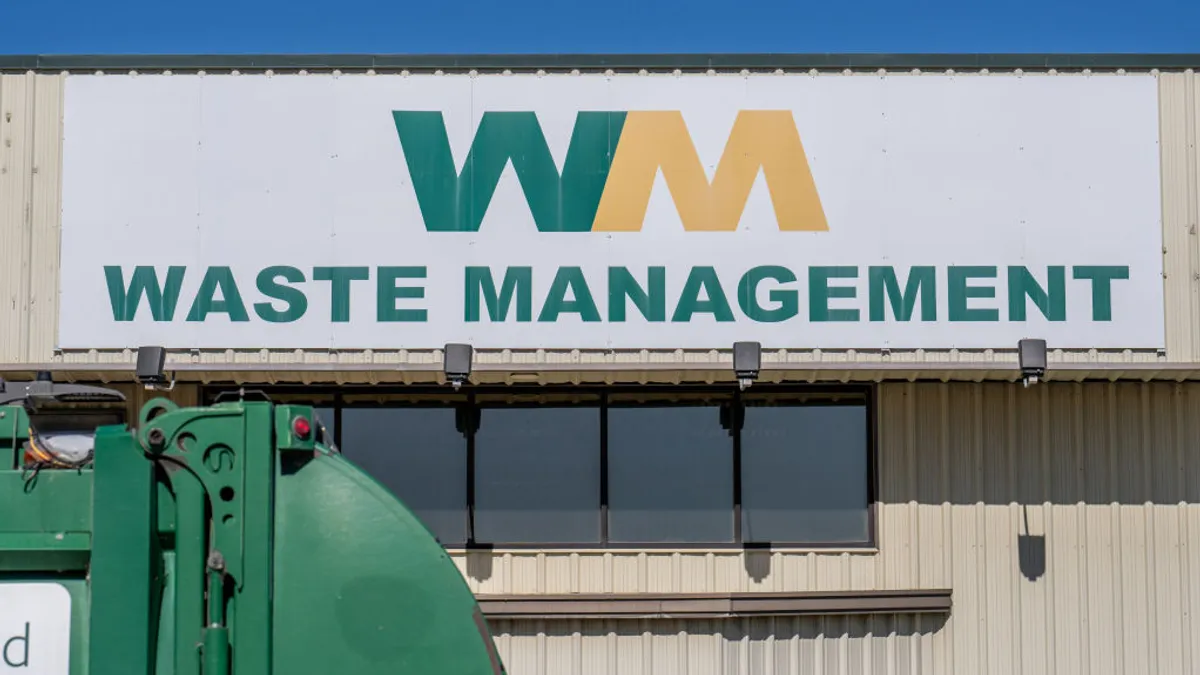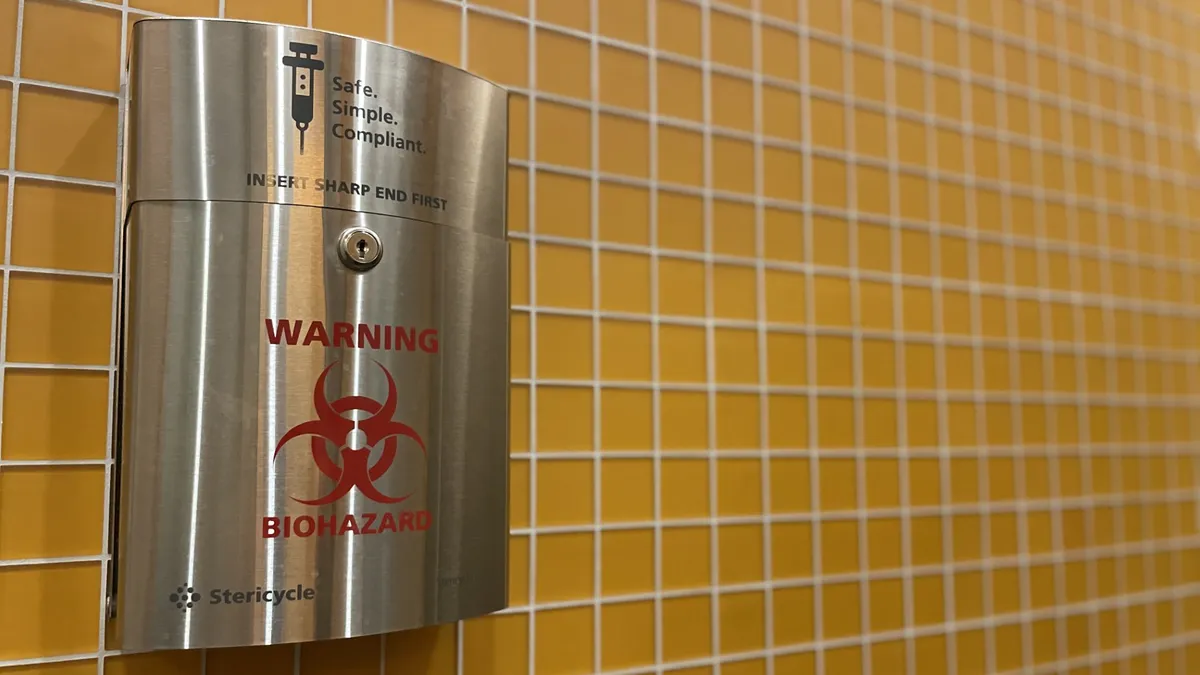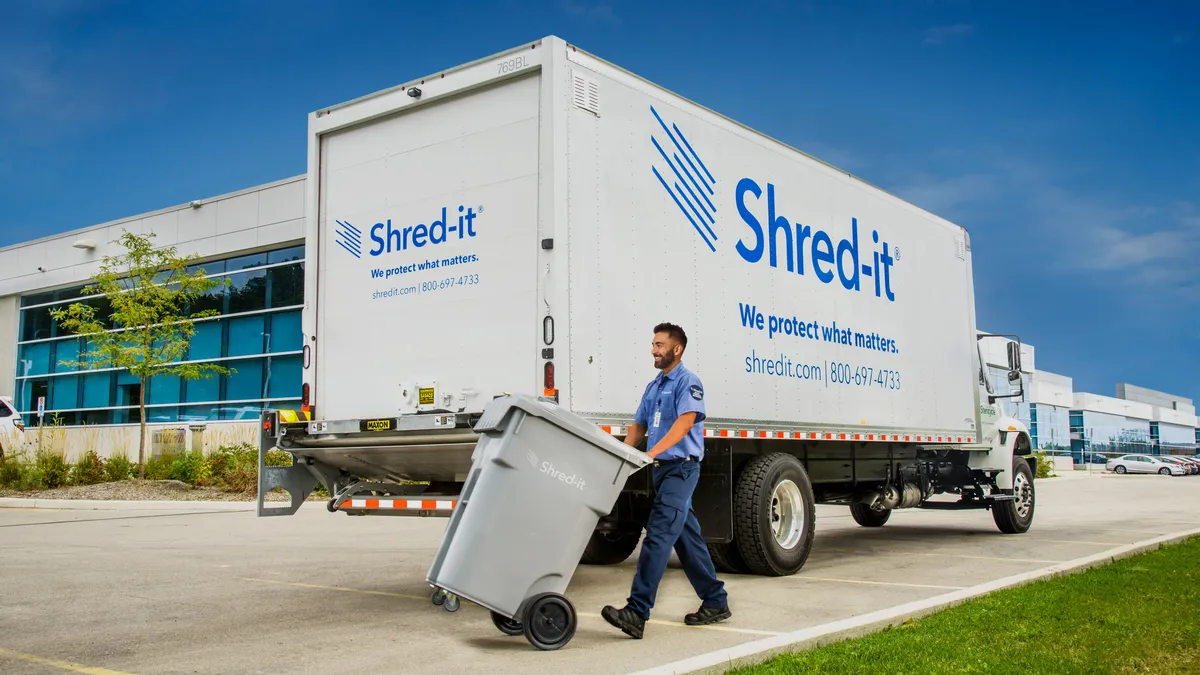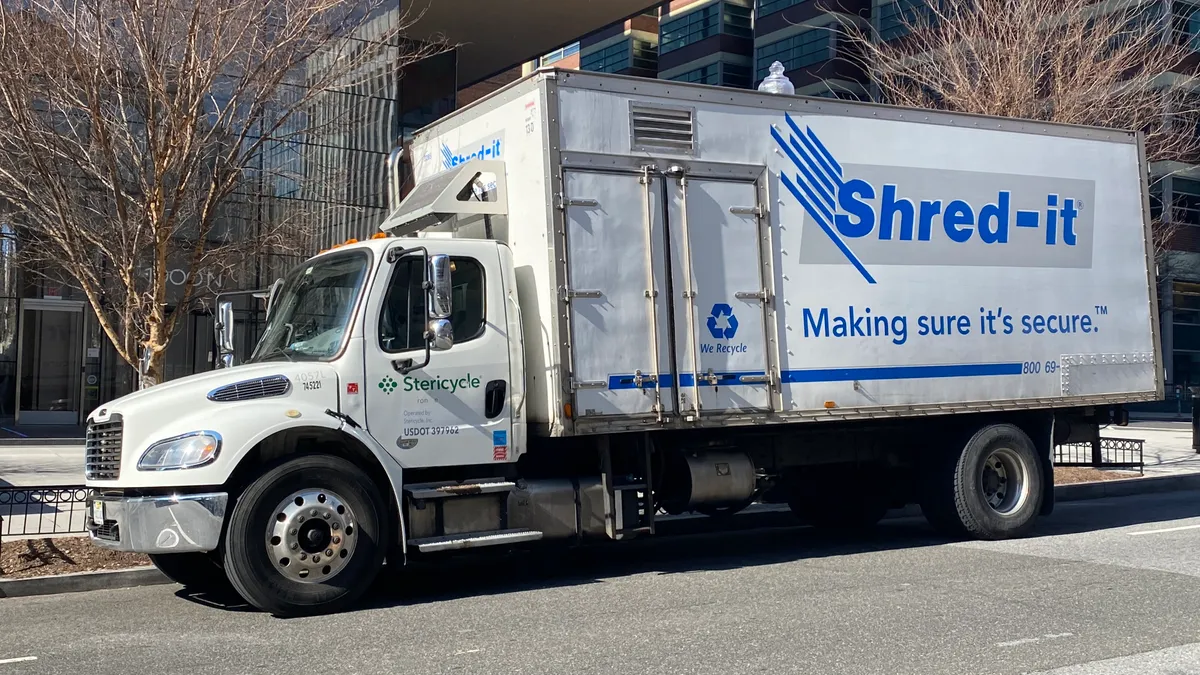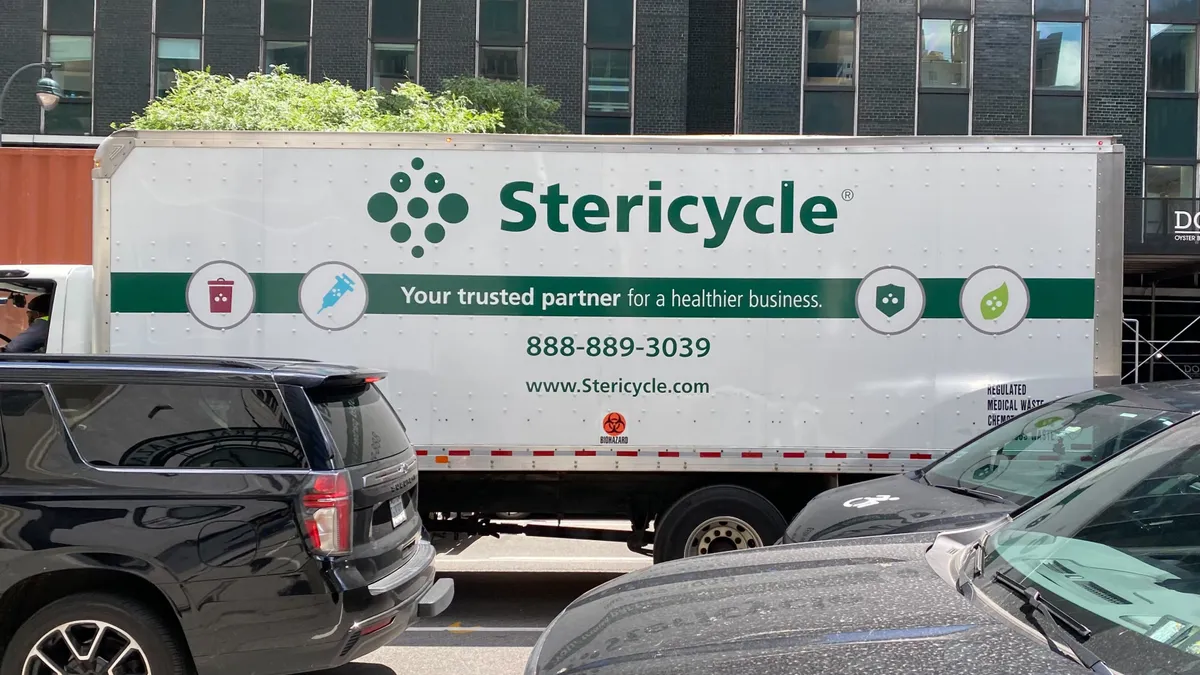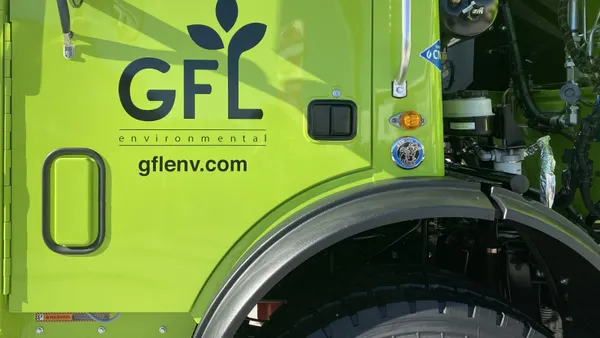Dive Brief:
- WM completed its $7.2 billion acquisition of Stericycle on Monday. The transaction valued the company at $62 per share. The assets are now part of the WM Healthcare Solutions division.
- “This acquisition provides a complementary business platform in medical waste, a sector with attractive near- and long-term growth dynamics, and in secure information destruction services to further our leading suite of comprehensive waste and environmental solutions,” said CEO Jim Fish in a statement.
- Rafa Carrasco, a senior vice president at WM who managed the deal integration team, will now serve as president of WM Healthcare Solutions.
Dive Insight:
The largest deal in the North American waste industry this year marks WM’s return to focusing on the medical waste sector. WM said it decided to acquire Stericycle in part because of how aging populations are expected to help grow the medical waste business.
Illinois-based Stericycle, founded in 1989, grew amid a period of focus on syringes and medical waste. It expanded through multiple acquisitions over the years, including through the large purchase of assets from Allied Waste and BFI in 1999. Stericycle went public in 1996.
Stericycle also encountered a range of financial and regulatory challenges along the way. CEO Cindy Miller — who jointed the company following a career with UPS and took on the top role in 2019 — is credited with helping to improve operations through a series of divestitures, the implementation of an enterprise resource planning system and other measures.
As of this spring, when the deal was announced, Stericycle operated an estimated 5,200 vehicles, 18 medical waste incinerators (plus a new site in Nevada), 71 autoclaves or alternative treatment facilities, 177 transfer stations, 105 document destruction sites and 25 other operating locations. At the time, 85% of its revenue came from North America and the rest was international.
Prior to the deal, WM listed medical waste as among its services, but analysts said it represented a small fraction of the overall business after the industry giant dabbled in the space off and on over the years.
In 2005, the company launched Waste Management Healthcare Solutions to provide regulated medical waste services for hospitals and other large waste generators. By 2009, then-CEO David Steiner said in a Q1 earnings call that the company was “taking the first steps toward creating a national footprint in medical waste” and that “we fully expect by the end of the year we'll be the second-largest medical waste player in the industry.”
By the second quarter of 2009, however, he noted a competitor had outbid WM on a key medical waste acquisition, slowing its plans. WM did complete other medical waste acquisitions in the coming years, as well as some facility investments. One 2010 deal involved buying divestiture assets in four states that were required by the U.S. Department of Justice when Stericycle purchased MedServe.
During this time, Stericycle was among WM’s major competitors for such deals, said Brian Butler, an analyst at Stifel. Stericycle’s growing market share in medical waste was likely a factor in WM easing off its long-term medical waste market plans, he said.
“Waste Management tried to buy in and do some roll-ups, but Stericycle kept buying most of the companies Waste Management was also trying to buy,” he said in an August interview. “At some point, Waste Management just decided to again focus on the solid waste business.”
Exact details remain unclear, and WM previously declined to comment, but the company later sold the bulk of its remaining medical waste assets. It still held a 15% stake in Trilogy MedWaste, a biomedical waste business backed by private equity firm KKR, until recently. CTFN reported in October that WM sold that stake ahead of the Stericycle deal closing.
Securities filings show Stericycle had been in talks with WM about a potential deal since as early as 2019. This didn’t evolve into serious deal discussion until later in 2023, once Stericycle got farther along with its ERP implementation.
The transaction cleared antitrust review by the DOJ and Federal Trade Commission in August, but was waiting on approval in other countries until recently. Canada was the remaining hurdle, which was cleared in October. Stericycle also agreed to sell its assets in Spain and Portugal to Urbaser for $86.4 million last month.
WM has previously said it expects to realize annualized synergies of at least $125 million, though more recently said the number may be conservative.
The company previously said it foresees a possible 3-5% compound annual growth rate in the medical waste sector, due to broader healthcare trends. Stericycle recently reported nearly $1.98 billion in revenue through Q3 of this year.
WM reported $16.17 billion in revenue through Q3, driven by steady trends in its main solid waste business. The company has also spent at least $790 million on solid waste acquisitions this year.




